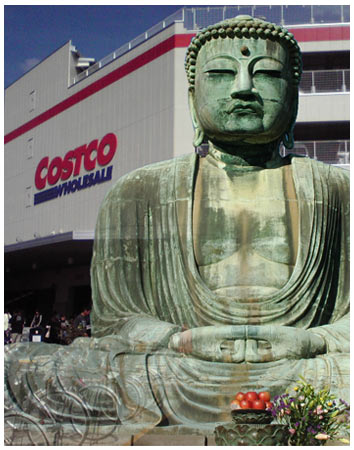One thing you get used to about Japanese people is, they don’t think too deeply about their own language, and it’s common for gaijin to ask questions that perplex Japanese speakers. I happened to notice that the word Obon was written with kanji that meant “tray,” and when I asked the J-List staff why this might be they drew a blank, admitting they’d never noticed the connection before. The word sashimi (sliced raw fish) is written with characters that mean “stabbed meat,” but if you’ve ever tried stabbing sashimi with chopsticks you’d get some funny looks. Similarly, the word chawan means “rice bowl” yet is written with characters that actually mean “tea bowl” despite the fact that you can’t drink tea out of it. A Japanese child who has lived abroad for a time and returned is a kikoku shijo, a “return-country girl-child” even though the term applies to boys, too. Back in the 19th century people started cleaning their teeth with tooth powder, a precursor to modern toothpaste, but the Japanese word for toothpaste is written with characters that mean “tooth polishing powder” yet no one thinks twice about it. There’s plenty of weirdness in English, of course, but because we aren’t as aware of the individual meanings of parts of words, we don’t notice them as much.

Gaijin think way too deeply about the Japanese language sometimes.















